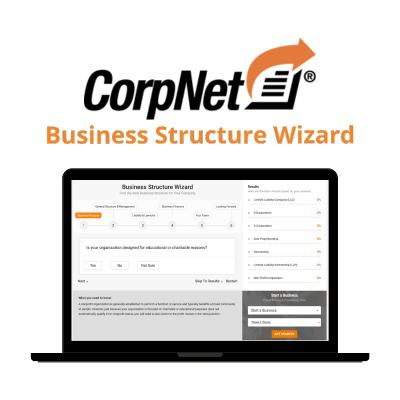Sometimes business partnerships just don’t work out. Whether it’s due to disagreements or because one partner wants to pursue other opportunities, it’s essential to know what your options are when it’s time to split up a partnership. One common scenario is when one partner wants out, but the other partner (or partners) wants to continue the business. In that case, a partner buyout is a likely solution. Knowing the proper way to buy out a business partner will save you time, money, and a lot of hassle in the future. Here’s what you should know about a partner buyout.
The Importance of a Partnership Agreement
In most cases, the terms and conditions of a partner buyout are documented in the partnership agreement created when the Partnership is formed. However, if a partnership agreement does not exist, it may be challenging to keep the business going—especially if the courts and lawyers get involved.
A buyout is a purchase of one partner’s company assets by another partner(s). The partner leaving the business wishes to be paid for their portion of the assets. Unless the agreement dictates something differently, a company valuation must be conducted—just as if the entire company is being sold. A professional valuator determines a business’s value by using industry standards and applying valuation approaches based on assets, liabilities, income, and the current market.
A goodwill contingent may also be applied, which means that because the company is a profitable concern and has more value than is apparent just considering its earnings, a valuator may add a goodwill buyout payment to the total buyout amount.
Once it’s determined that the partner wants to leave the business and you’ve agreed on the company’s value, the partnership agreement should specify how the ex-partner will receive the buyout money. Both parties should agree on how the ex-partner should be paid and for how long a time. For example, the ex-partner may receive regular payments over several years. Or, if the ex-partner wants a lump sum of cash, the remaining partner/s may need to take out a loan to complete the buyout.
Making the Partner Buyout Legal
Once the buy-sell agreement is completed and signed by all parties, who else needs to know? In general, who needs to know is determined by the Secretary of State in the state where the business is located. Most states require all partners to sign a statement of dissolution, but not all states require that statement to be filed.
Most states have adopted the Uniform Partnership Act (UPA) and the Revised Uniform Partnership Act (RUPA), which dictates the regulations applied to Partnerships. Under UPA and RUPA, a partner can withdraw from a Partnership at any time (with proper notice). Still, UPA and RUPA have different rules about what happens to the Partnership after a partner leaves. Under UPA, when a partner leaves, the Partnership is automatically dissolved. For the company to keep going, it must first go through dissolution, which can then be reformed as a Partnership or a different business structure. Under RUPA, a partnership may conduct a partner buyout without dissolving the Partnership.
The process also differs depending on the business structure of the partnership:
- Two-person General Partnership – In a two-person General Partnership, the business is no longer a Partnership once one partner leaves. Therefore, the remaining partner may transition to a Sole Proprietorship or file as a legal entity with the state. A single owner can register as a single-member LLC or a C Corporation.
- Limited Liability Company (LLC) – The company’s operating agreement in an LLC should dictate how and when a partner/member can be bought out. An LLC operating agreement is a document stating the members’ rights and obligations, the distribution of income, and the process for a departing member.
- Limited Partnership (LP) – A Limited Partnership (LP) has both general and limited partners. The general partners bear most of the company’s liabilities and run the daily operations, while the limited partners invest money into the company but do not participate in its operations. Because limited partners don’t participate in business management, a limited partner can leave the company without causing the Partnership to dissolve.
- Limited Liability Partnership (LLP) – A Limited Liability Partnership (LLP) is a business structure used primarily by professionals like attorneys, accountants, physicians, engineers, dentists, and architects. A business must have two partners to form an LLP, and the partners must usually be licensed in the same profession. The requirements and rules regulating LLPs vary by state, so check with the secretary of state to know how to buy out a partner in an LLP.
- C Corporations – Although C Corporation owners are considered employees and not partners, a change in ownership should also be filed with the state. Check with your secretary of state to see what forms should be filed, or CorpNet can do it for you.
Tax Implications
If a Partnership is dissolved and a new company is formed, the Internal Revenue Service (IRS) requires the company to obtain a new Federal Tax ID Number or Employer Identification Number (EIN). However, if the company continues as an LLC or corporation and does not change its name, it does not need a new tax ID number.
Also, Partnerships must file IRS Form 8308 to report the sale or exchange by a partner of all or part of a partnership interest where any money or other property is exchanged.
Wrapping Up Final Details
By default, General Partnerships are legally registered under the partners’ names. Therefore, the business’s name change must be filed with the secretary of state. In addition, if the business changes its DBA (doing business as) name, the company must cancel its current DBA and register a new one. All licenses and permits must also reflect the company’s new name and business bank accounts.
Buying out a partner should not be taken lightly. Talk to your attorney and accountant to make sure the process goes smoothly. And if you need help registering a new business structure, CorpNet is here to help.

Choosing a business structure can be a tough decision for the new business owner. CorpNet wants to make the process easier.
This free, online tool helps small business owners navigate the process of picking the right business structure for their new business.





